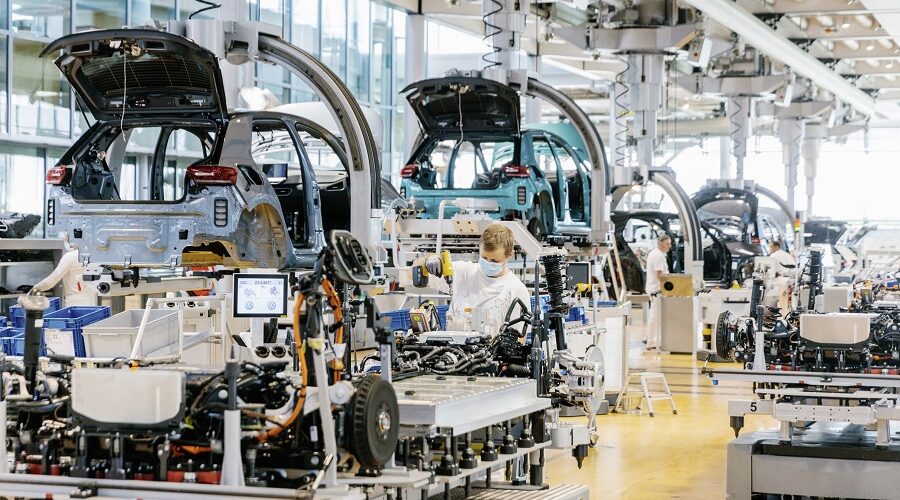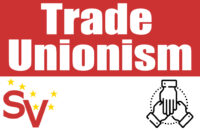The German auto industry is burning out. Next Wednesday, the production lines at Volkswagen will stand idle. According to information from Bild, production of the VW Golf at the Wolfsburg plant will be suspended. The production break will then be gradually extended to other models and to other locations. The car company’s management initially declined to confirm this step. As recently as Wednesday morning, an internal letter to employees stated that production was “unaffected” despite the chip shortage. However, the letter already contained a warning: “Given the dynamic situation, impacts on production cannot be ruled out in the short term.” According to Bild, VW is already in talks with employment agencies about short-time work. This could affect tens of thousands of employees.
The production stoppage is part of the trade war being waged between the US and China, which is now also affecting Germany as an industrial hub. The issue stems from a supply stoppage by the Dutch-Chinese chip manufacturer Nexperia. The company produces standard chips that are used primarily in automotive production, for example in hazard warning lights, airbags, and anti-lock braking systems. Up to 500 of these components are found in every single car. With a market share of 40 percent, Nexperia is the world’s largest supplier of such simple semiconductors and generates about half of its revenue from the automotive industry.
Since 2019, the company has been owned by the Chinese tech giant Wingtech—a situation that has long been met with disapproval in Washington, DC. At the end of 2024, Wingtech was placed on a list of companies subject to US sanctions. On 29 September, this list was expanded to include the companies’ respective subsidiaries without individual review. Just one day later, the Dutch Ministry of Economic Affairs took control of Nexperia, removed CEO Zhang Xuezheng – founder of Wingtech – and temporarily transferred the management of all company shares to a trustee.
The Chinese side reacted promptly to this effective expropriation and imposed export controls, with significant consequences. For example, components produced at the Nexperia plant in Hamburg are not sent directly to VW or other automakers. Instead, they are first processed into finished diodes or transistors in a further step, which takes place in the People’s Republic, and then re-exported to Europe—or not. Now there is a blatant shortage of such simple semiconductors, and not just at Volkswagen. It is affecting the entire automotive industry, which believed it hardly needed to worry about building up inventory—and there is no short-term alternative, as semiconductors from other manufacturers must first be tested and certified.
The acute disruptions in automobile production are evidence of a larger process. The unified world market, celebrated a quarter of a century ago as peaceful globalisation, with unhindered free trade, global supply chains, and just-in-time production, is coming to an end. A technologically and economically closely interconnected world is currently being divided into blocs.
On the day the German public learned of Volkswagen’s production stoppages, DPA reported that the world’s oldest VW Beetle, a model from 1937, was roadworthy again. It reportedly does not contain Nexperia semiconductors.






